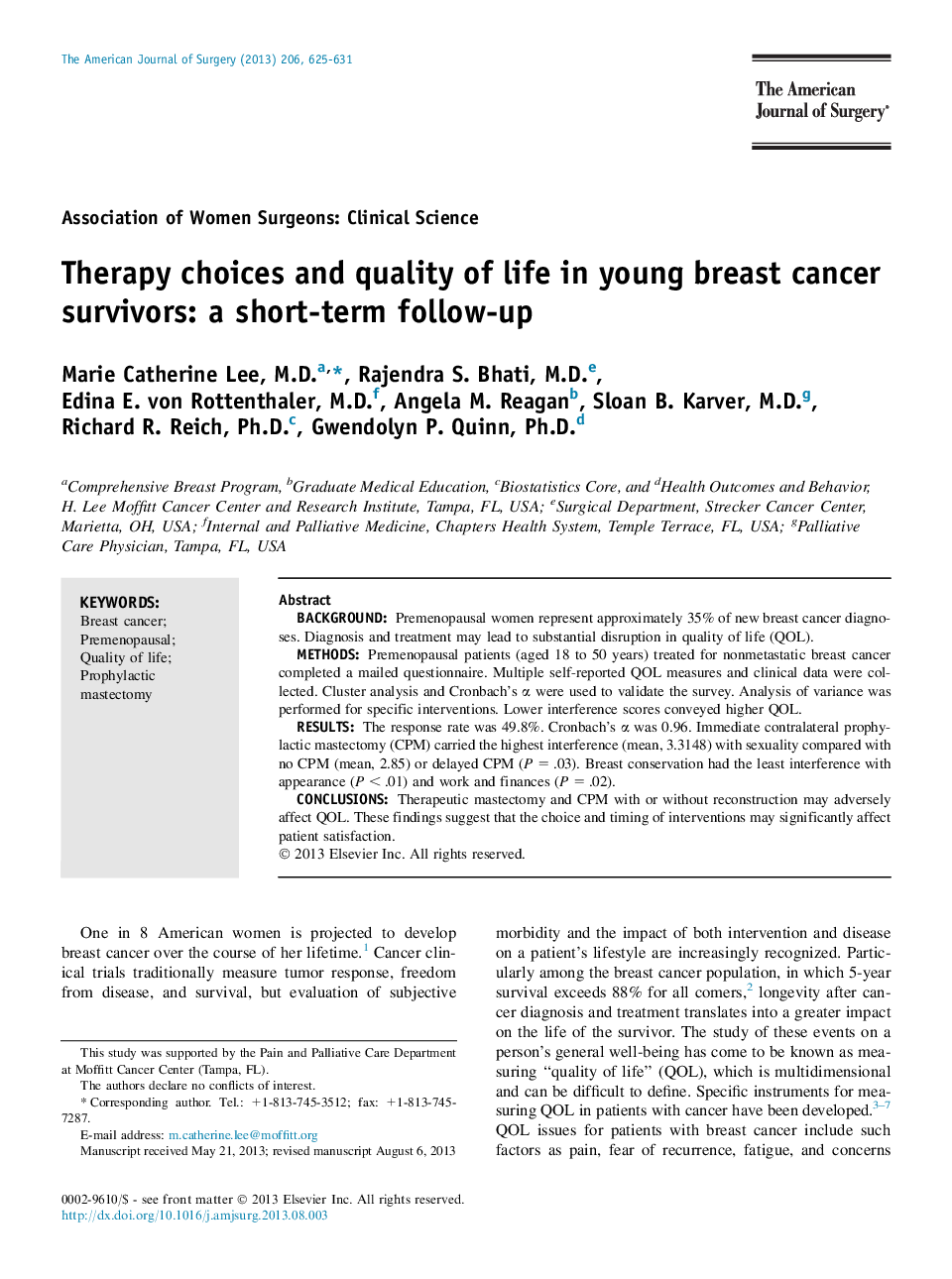| Article ID | Journal | Published Year | Pages | File Type |
|---|---|---|---|---|
| 4278820 | The American Journal of Surgery | 2013 | 7 Pages |
BackgroundPremenopausal women represent approximately 35% of new breast cancer diagnoses. Diagnosis and treatment may lead to substantial disruption in quality of life (QOL).MethodsPremenopausal patients (aged 18 to 50 years) treated for nonmetastatic breast cancer completed a mailed questionnaire. Multiple self-reported QOL measures and clinical data were collected. Cluster analysis and Cronbach's α were used to validate the survey. Analysis of variance was performed for specific interventions. Lower interference scores conveyed higher QOL.ResultsThe response rate was 49.8%. Cronbach's α was 0.96. Immediate contralateral prophylactic mastectomy (CPM) carried the highest interference (mean, 3.3148) with sexuality compared with no CPM (mean, 2.85) or delayed CPM (P = .03). Breast conservation had the least interference with appearance (P < .01) and work and finances (P = .02).ConclusionsTherapeutic mastectomy and CPM with or without reconstruction may adversely affect QOL. These findings suggest that the choice and timing of interventions may significantly affect patient satisfaction.
